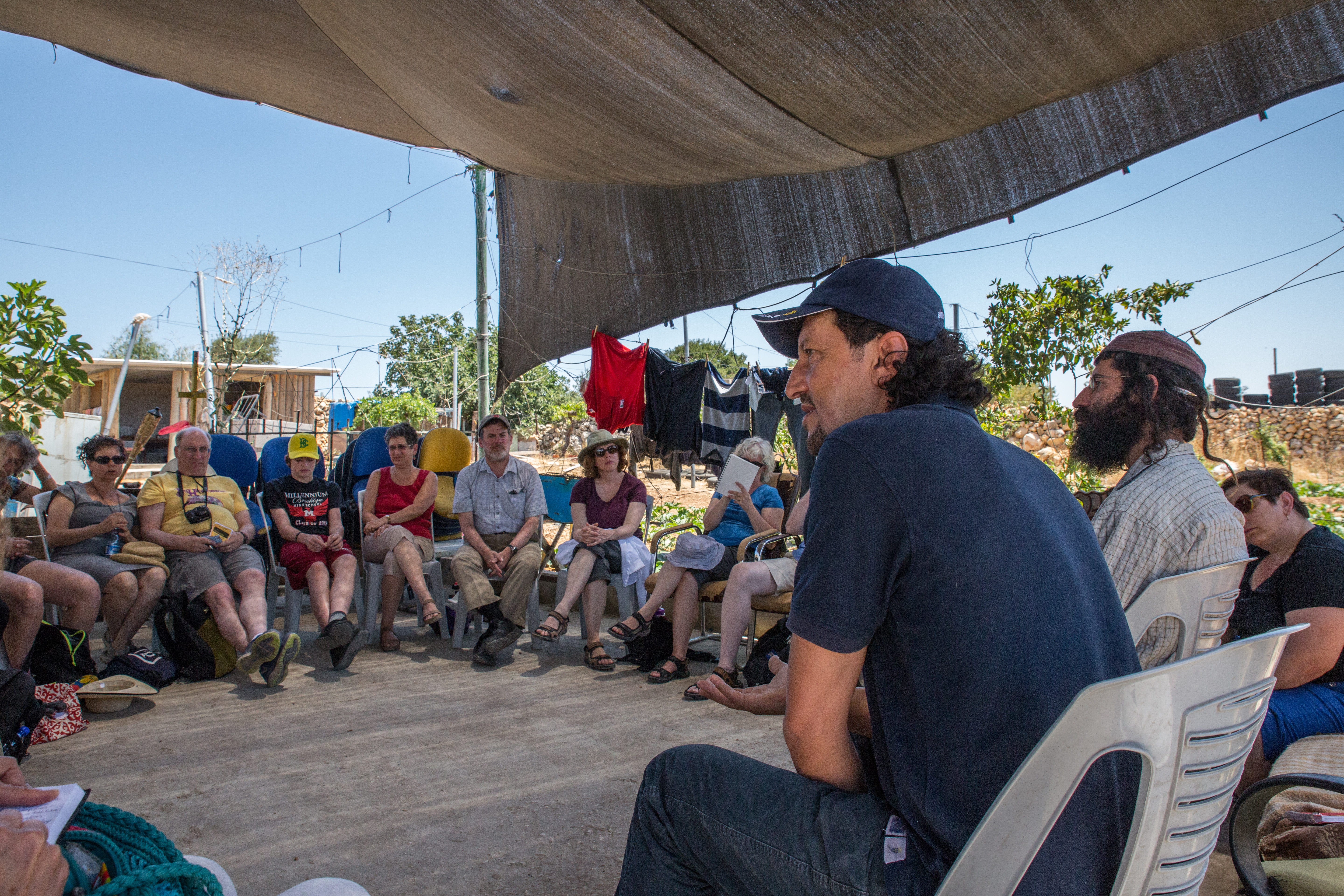Jerusalem Prayer Project
Presents
The Documentary Series
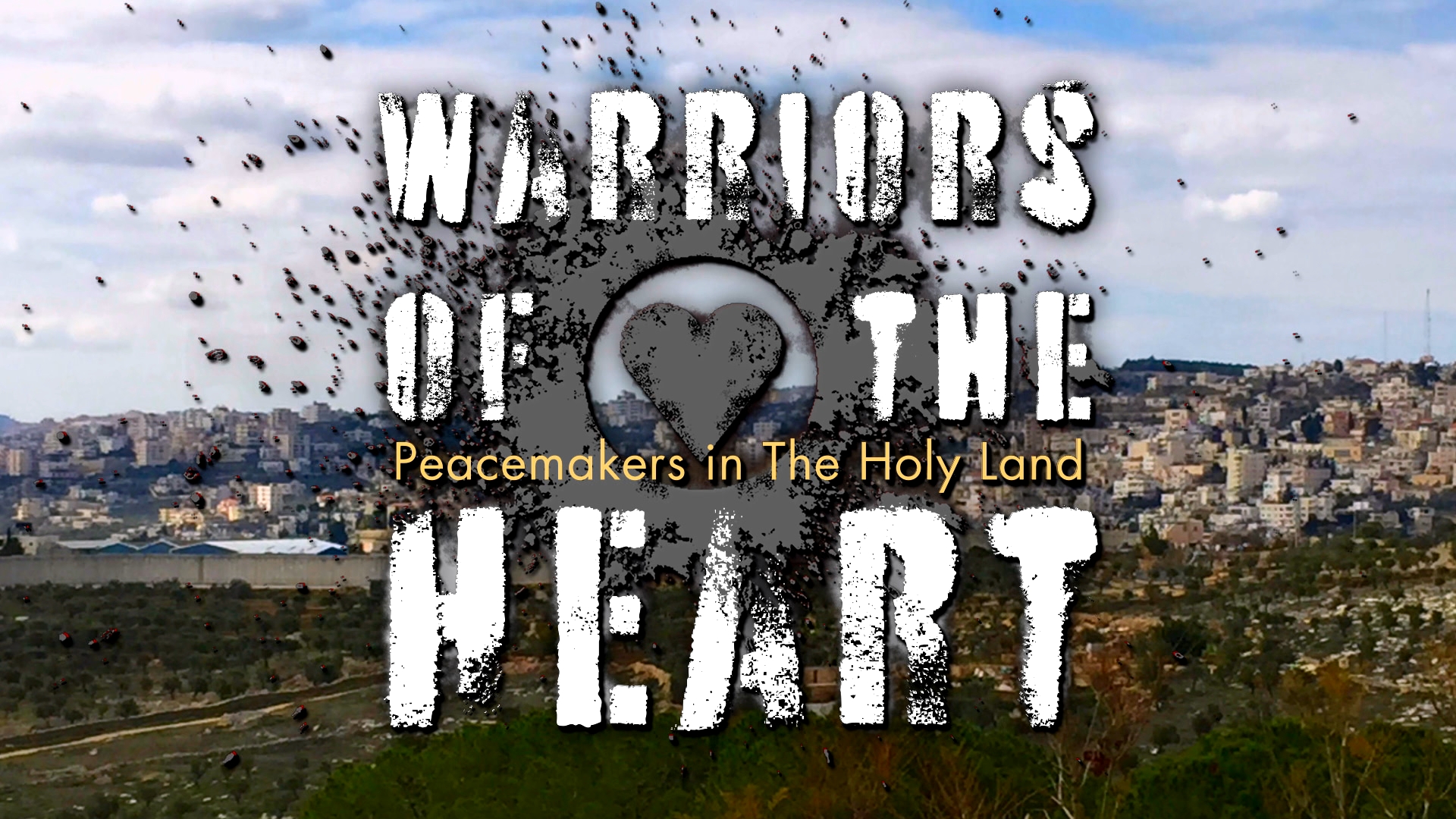
The Jerusalem Prayer Project’s documentary series ‘Warriors of the Heart; Peacemakers in the Holy Land’ tells stories of courageous Israelis and Palestinians breaking through barriers of separation, to forge new pathways to peace and reconciliation, outside the mainstream politics of the Israeli/Palestinian conflict.
Introducing
‘Women Wage Peace’
The Birth of an Israeli and Palestinian Women’s Movement
“Women can bring us as one tribe as human beings together.”
Huda Abuarquob
Regional Director, Alliance for Middle East Peace
“The tears were not desperate tears, they were for the first time in a long time, hope tears,”
Leah Migdal
Women Wage Peace
The Story of ‘Women Wage Peace’
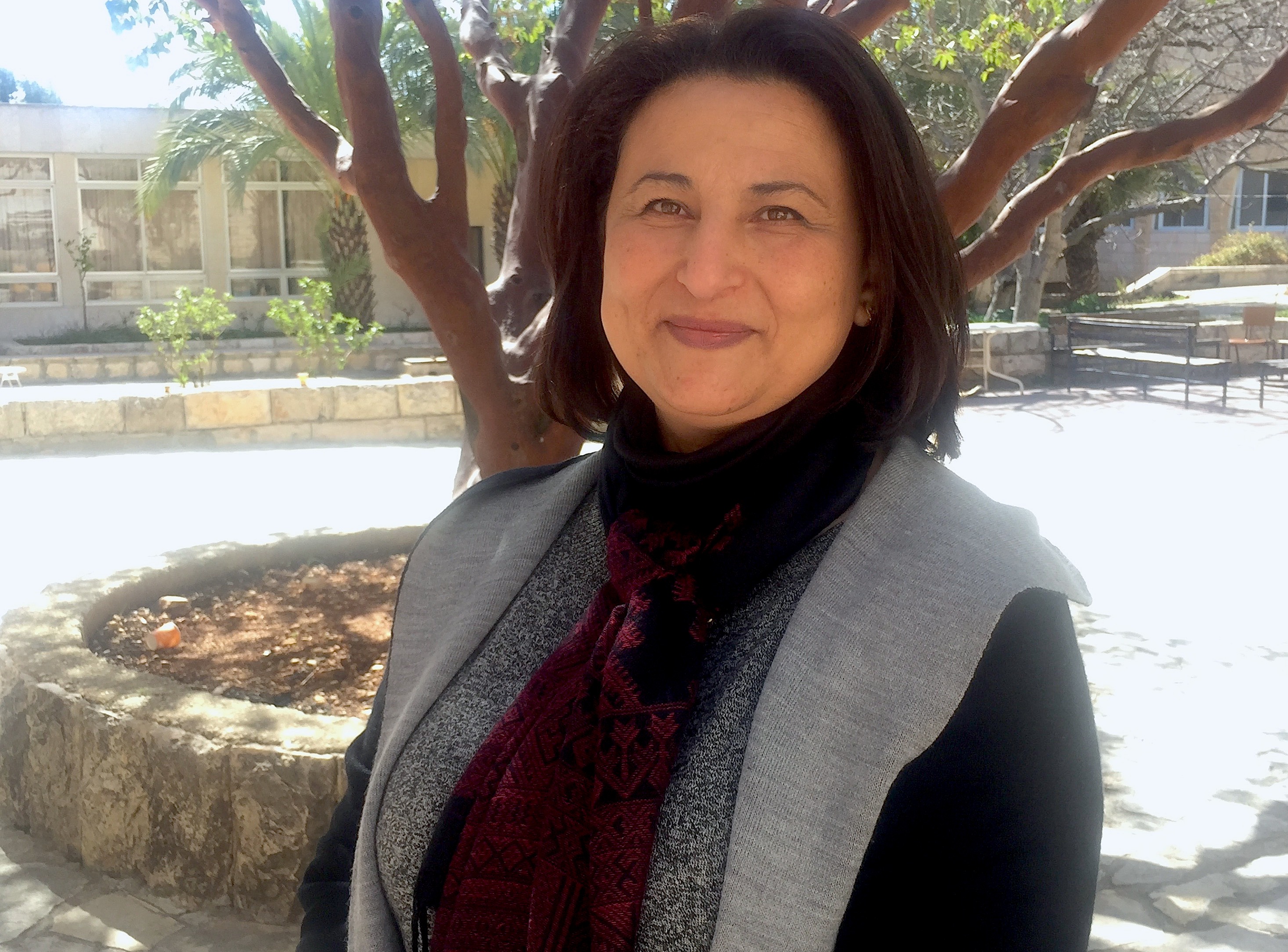
The Equation For Peace
Alliance for Middle East Peace Regional Director and Palestinian educator and activist, Huda Abuarquob articulates with great clarity what peace in Jerusalem means to the world – from a JPP interview in at the Jerusalem YMCA, Spring 2018.
 JPP Interview with Huda Abuarquob 2018
JPP Interview with Huda Abuarquob 2018
In February of 2017, Jerusalem Prayer Project’s founder Stephen Fiske and his producing partner, filmmaker Robert Corsini, traveled to Jerusalem to begin field production work for the Jerusalem Prayer Project’s feature documentary, Warriors of the Heart: Peacemakers in the Holy Land.
When they interviewed Palestinian activist Huda Aboarquob in the town of Beit Jala in the West Bank, Robert and Stephen were inspired to turn their cameras toward the critical role women are playing in grassroots peace organizing. Huda is the regional Director of the Alliance for Middle East Peace, an umbrella organization of 106 peace groups from across the region.
Huda, together with the Israeli based ‘Women Wage Peace’ organization, became the central organizers of the ‘Women’s March for Hope’, which took place in October of 2016. The march began along Northern Israel’s border with Lebanon and reached all the way to Jerusalem over the course of two weeks.
The march began modestly with 19 women, 10 Israelis and 9 Palestinians and by the time they arrived in Jerusalem, they were 15,000 strong, rallying in front of Prime Minister Netanyahu’s residence and demanding renewed efforts to make peace a priority AND reality.
Since then, continued turbulence in the Palestinian/Israeli conflict have propelled the women into year-round actions ranging from marches and demonstrations, to meetings with both Israeli and Palestinian Prime Ministers, concerts, parlor gatherings, and weekly vigils held outside the Knesset. Their movement today has grown to over 45,000 members… and JPP is committed to bringing their story to a global audience.
One of the accomplishments of the ‘marches in 2016 and 2017 and ongoing actions, is to demonstrate that Palestinian women together with their Israeli counterparts, are committed to peace-building and reconciliation and that the Israeli government could no longer make the claim of not having willing ‘partners’ forpeace in Palestine.
The ongoing success of Women Wage Peace is a clear expression of a renewed grassroots Israeli/Palestinian peace movement where women are taking the lead and serving as its power and inspiration.
Huda’s story and those of all participating women, Jew, Arab & Christian, are being echoed around the world.

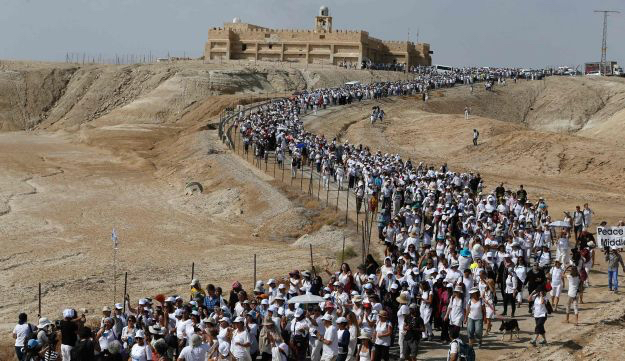
One of the major accomplishments of the march was to demonstrate that Palestinian women, together with with their Israeli counterparts, are committed to peace-building and reconciliation, and that the Israeli government could no longer make the claim that they don’t have willing ‘partners’ forpeace in Palestine.
The march’s success was a clear expression of a renewed grassroots Israeli/Palestinian peace movement where women are at the heart of it AND serve as itspower and inspiration.
Huda’s story and that of all the women who participated, Jew, Arab & Christian, is being echoed around the world.
Exemplifying JPP’s mission, we are introducing the first in a series of our stories to be integrated into the full-length film. This particular segment captures the essence of the growing “Women Wage Peace” organization in Israel and occupied Palestine and integrates Israeli/Canadian musician Yael Deckelbaum’s stirring music video,‘Prayer of the Mothers’ into the story.
“We are coming from the heart of the conflict, we’re reaching out…we’re even willing to talk to Hamas.”
Rabbi Hanan Schlesinger, Roots Representative
Coming Soon….
‘Roots’
The story behind the creation of a Palestinian/Israeli non-violent, peace-building movement…
“Success means… creating an environment where both nations will live and practice their truth, without victimizing each other.”
Ali Abu Awwad, Palestinian non-violent peace activist
At a key West Bank crossroads, near the Israeli settlement of Gush Etzion, “settler” Rabbi Hanan Schlesinger and Palestinian political activist Ali Abu Awwad have teamed up to build a peace center where together they challenge long held animosities and advocate for peace between their peoples.
A compliment to the Women Wage Peace story, Hanan and Ali form an unlikely team advocating for peace in the occupied territories. This story tracks their five-year journey of self-discovery that led to the forming of their organization.
Through their programs and workshops, they teach people, especially disenfranchised youth, soldiers and ordinary citizens, principles of non-violence, positive interaction with one another and techniques for working through seemingly intractable cultural, political and religious differences.
COMING SOON…
(in post-production)
The story behind the creation of a Palestinian/Israeli peace-building movement
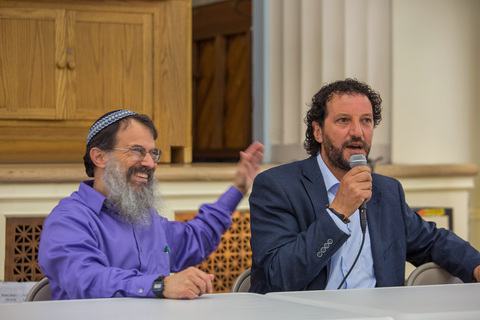
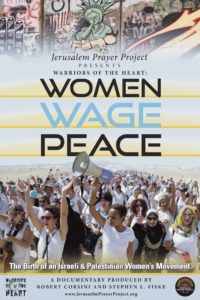
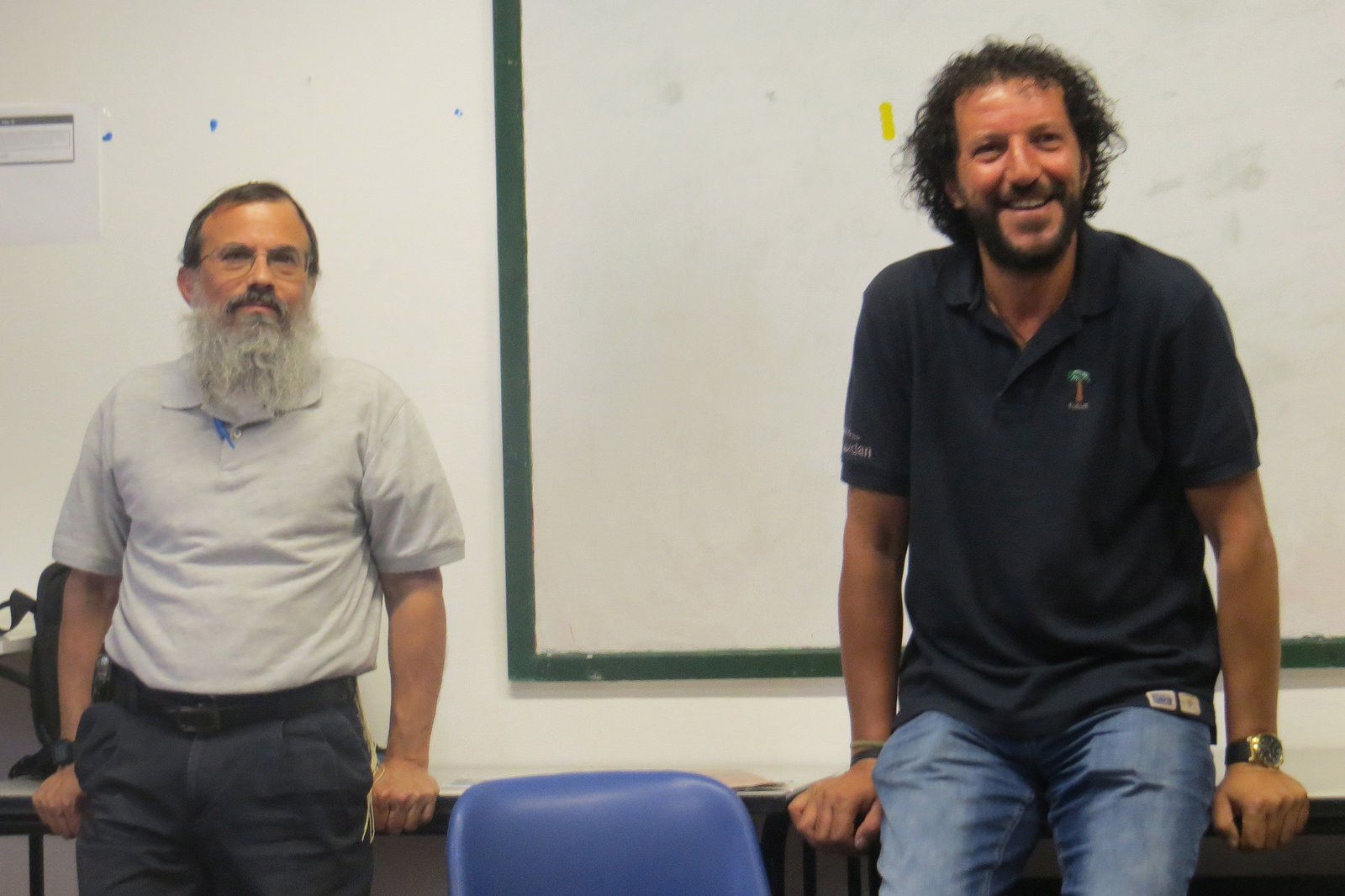
 SEE THE PREVIEW
SEE THE PREVIEW

